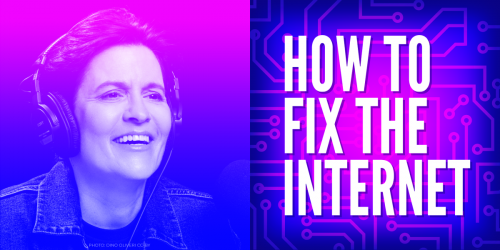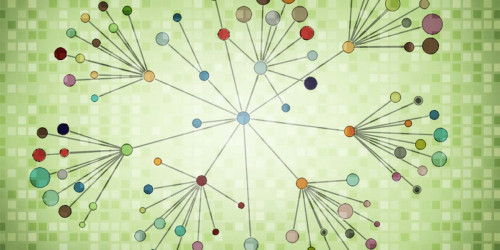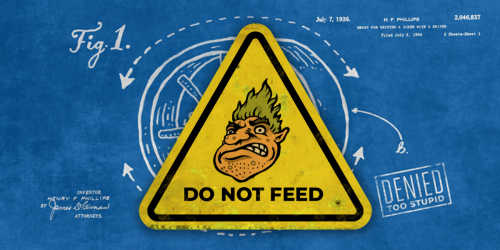EFF has been among several groups following the Trans-Pacific Partnership (TPP) and the threatening ramifications it would have for the future of the open Internet, access to knowledge, and innovation. Based on what we know from the leaked intellectual property chapter (IP chapter) proposed by the US, it carries many of the restrictive copyright provisions that already exist in US law. From what we have seen, however, this agreement is even more extreme, going beyond ACTA and DMCA rules: it does not export the many balances and exceptions that favor the public interest and act as safety valves in limiting rightsholders’ protection.
One of the most problematic aspects of the TPP’s IP chapter, as we know from the leak, is its proposed language regulating temporary copies. As currently drafted, the related provision creates chilling effects not just on how we behave online, but also on the basic ability of people and companies to use and create on the Web.
Article 4.1 of the leaked TPP’s IP chapter on Copyright and Related Rights addresses temporary copies. It states:
Each Party shall provide that authors, performers, and producers of phonograms have the right to authorize or prohibit all reproductions of their works, performances, and phonograms, in any manner or form, permanent or temporary (including temporary storage in electronic form). [Emphasis our own]
This language reveals a profound disconnect with the reality of the modern computer. In fact, all routine computer functions rely upon the regular creation of temporary copies of programs and files. Temporary copies are files that are automatically copied by computers into their random access memory (“RAM”) during the course of routine operations. “Temporary copying” of data is fundamental to how computing works in general. However, this is especially true on the Internet: videos are buffered in memory in order to play smoothly, browser cache files are stored on servers to speed up the loading of websites, and copies of visited pages are stored in a temporary Internet files folder on your hard drive, speeding up the loading process for those websites the next time you visit them.
Since it’s technically necessary to download a temporary version of everything we see on our devices, does that mean—under the US proposed language—that anyone who ever views content on their device could potentially be found liable of infringement? For other countries signing on to the TPP, the answer would be most likely yes.
The United States has grappled with this problem for years through the judicial system. US courts have considered whether the literal copy made by ordinary operation of a computer is sufficiently fixed in place to be subject to copyright, and—if it is —whether other exceptions and limitations allow the operation without giving veto power to the copyright holder. To bring all temporary copies under copyright without the exceptions and limitations is bad policy, and it’s at the heart of the TPP provision.
Twenty years ago, in MAI Systems Corp. v. Peak Computer, Inc. a US appeals court held that temporary copies in RAM were infringing when a third-party computer repair technician loaded a computer program into memory.1 The US Congress quickly reacted, creating a new exception for copies necessary to run a computer program (17 U.S.C. § 117). However, over the following years, several courts relied upon this notion to find that temporary copies, like local caches of webpages, were subject to the Copyright Act.2
Recognizing that a strict interpretation of this rule would lead to unintended consequences, many courts correctly applied other exceptions and limitations, like the fair use doctrine or implied licenses,3 which greatly helped prevent unjust results.
More recently, a line of cases has clarified the law for temporary copies. In CoStar v. LoopNet,4 another appeals court found that temporary copies that where qualitatively transitory were not subject to the Copyright Act. Subsequently, in the Cablevision remote DVR case,5 a different appeals court applied this reasoning to permit video buffering copies.
Thus, through the judiciary, the US legal system has provided the space for users and innovators despite the notion that a RAM copy would be subject to the Copyright Act. The TPP seeks to undo these years of positive development, and impose the controversial rule without requiring the accompanying exceptions and limitation that are necessary to balance the law.
Worse yet, it is hard to say that other TPP negotiating parties will have the same ability to carve out such exceptions and limitation. Neither the content, the footnotes, nor any part of the accompanying Side-letter requires any of those doctrines that have provided the US with the flexibility that has allowed the ordinary operation of computers, websites and video streaming to operate.
And this is not only potentially disastrous for users within TPP countries, it would have a nasty effect on technological innovation aimed at providing users with new ways of exploring and accessing content.
A definitive and inflexible international standard on temporary copies would not only create a new intricate layer of copyrights, it would impact the cost of accessing licensed content, as well as raise concerns about how this provision could affect privacy. Without further clarity, the TPP proposal could require licenses for every single copyrighted file that passes through a device. This is currently impossible to monitor with existing software and hardware, and developing the technology to monitor all transient copies of files would have profound negative effects on user privacy.
The US Congress has recognized the importance of creating escape valves to allow innovation to occur. For instance, it created a safe harbor for Internet services providers within the DMCA6. This protection is vital for companies hosting and storing others’ content including user-generated content, such as Wikipedia and open educational resources, such as Connexions. However, no such safe harbor has so far been included in the TPP’s IP chapter. In other words, this proposal is an example of the content industry fighting for not just the right to profit from their content, but to do so by retaining the right to shut down the innovation of others.
This proposal may seem absurd to you. It should. Given how crucial the storage of “temporary copies” of digital files is to the functioning of our devices, the inclusion of unfettered provisions to regulate it is purely backward, especially given the supporters’ failure to justify a legitimate purpose for imposing a burden without a balance.
The content industry is losing the debate in the US courts, as more cases are finding applicable exceptions and limitations. But if the proposed strict temporary copies provision were to be adopted by another country that does not have similar fair use safeguards, it could play out much worse for the users. What is clear is that such an abusive expansion of copyright restriction could easily pave the way for regulations and technological standards that are massively abused to block innovation and oppress users.
Additional resources:
- A New Perspective on Temporary Copies: The Fourth Circuit's Opinion in Costar v. LoopNet By Jonathan Band and Jeny Marcinko (2005)
- ArsTechnica on MDY Industries v. Blizzard & how this decision has upheld that RAM copies of the software constitute infringement (under section 2).
- A New Perspective on Temporary Copies
- The Fourth Circuit's Opinion in Costar v. LoopNet. 2005 Stan. Tech. L. Rev. P1
- 1. MAI Systems Corp. v. Peak Computer, Inc., 991 F.2d 511 (9th Cir. 1993).
- 2. See e.g. Ticketmaster LLC v. RMG Technologies, Inc., 507 F. Supp. 2d 1096 (CD Cal. 2007)
- 3. See e.g. Field v. Google, Inc., 412 F.Supp. 2d 1106 (D. Nev. 2006).
- 4. CoStar Group, Inc. v. LoopNet, Inc., 373 F.3d 544 (4th Cir. 2004).
- 5. Cartoon Network, LP v. CSC Holdings, Inc., 536 F.3d 121 (2d Cir. 2008).
- 6. DMCA 17 USC § 512 at http://www.copyright.gov/title17/92chap5.html









